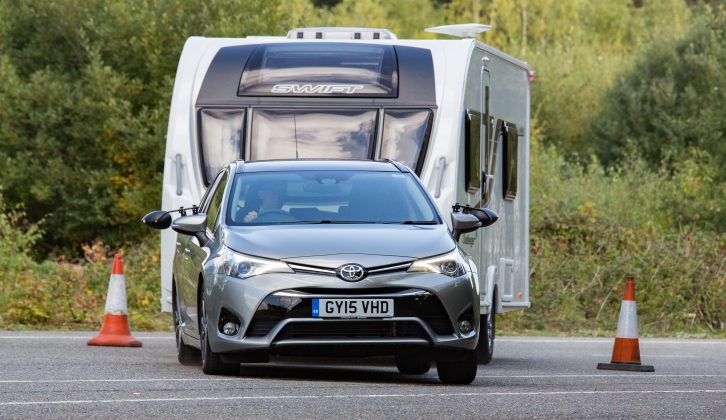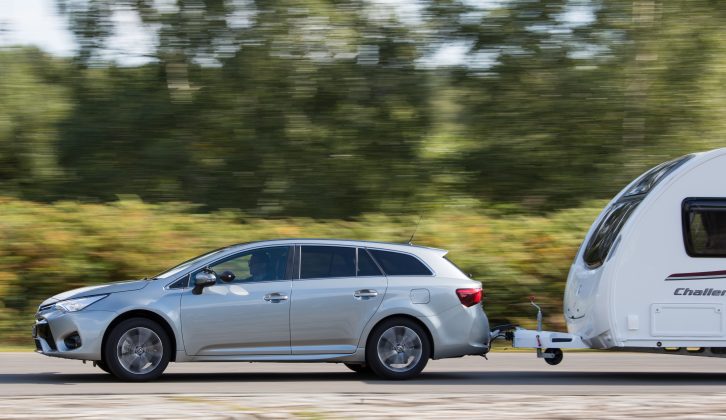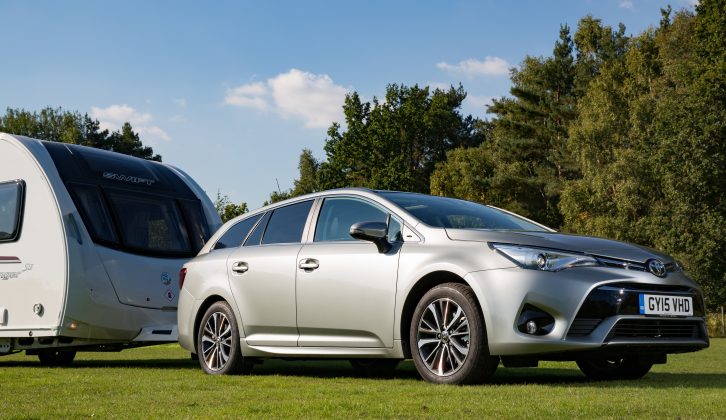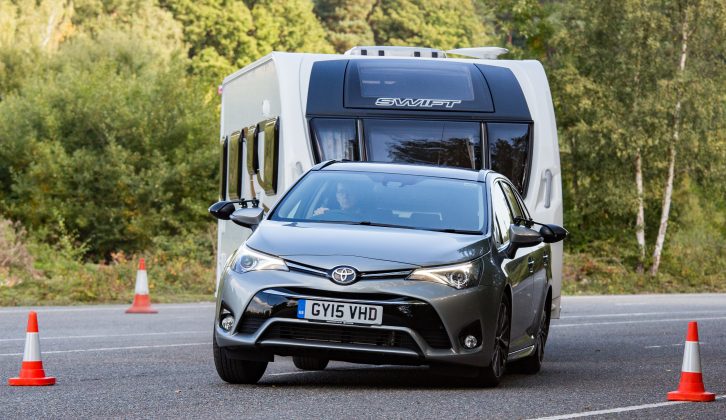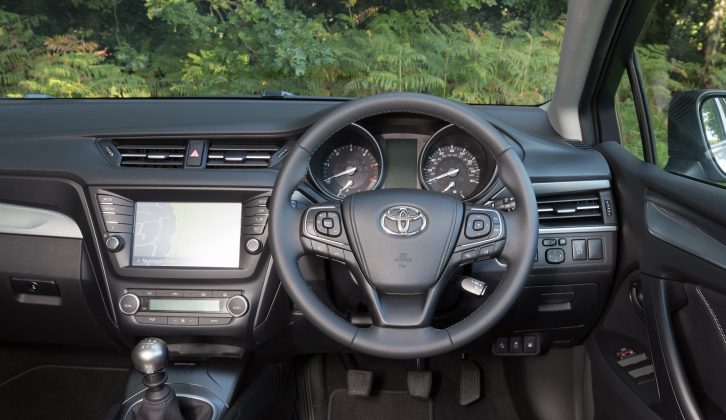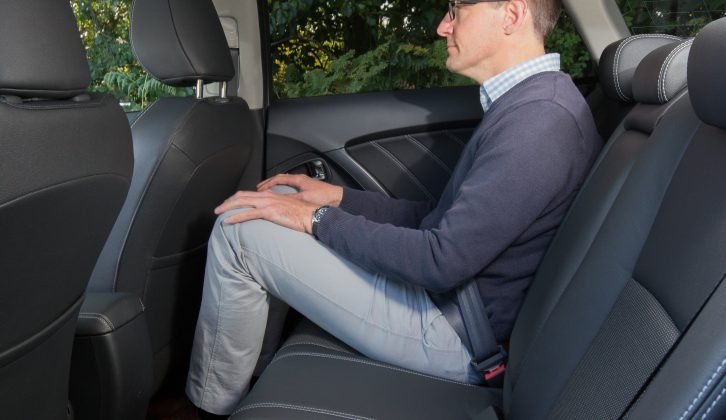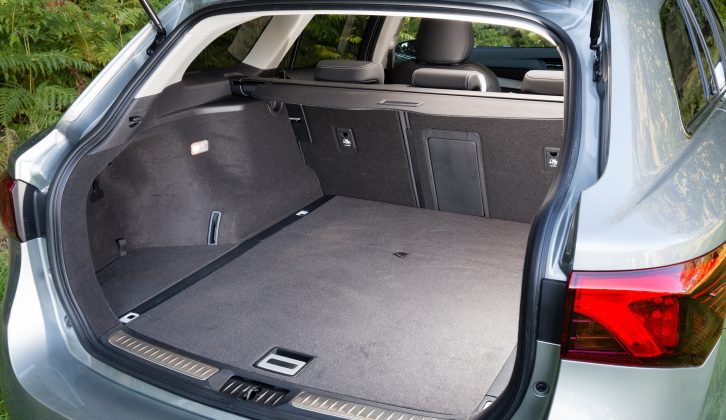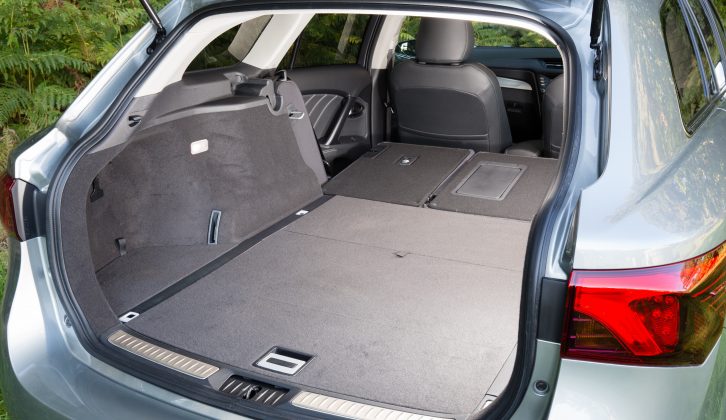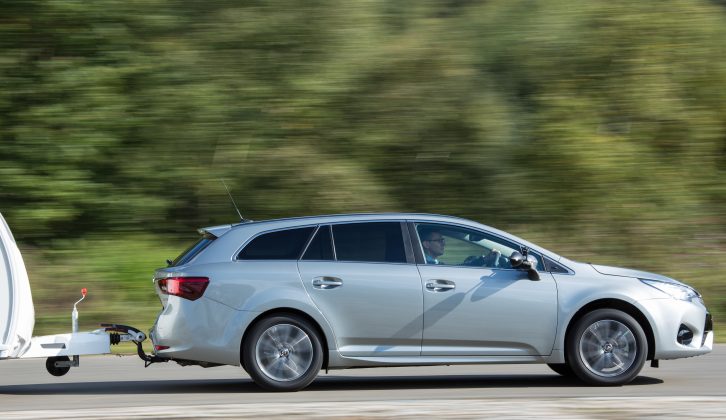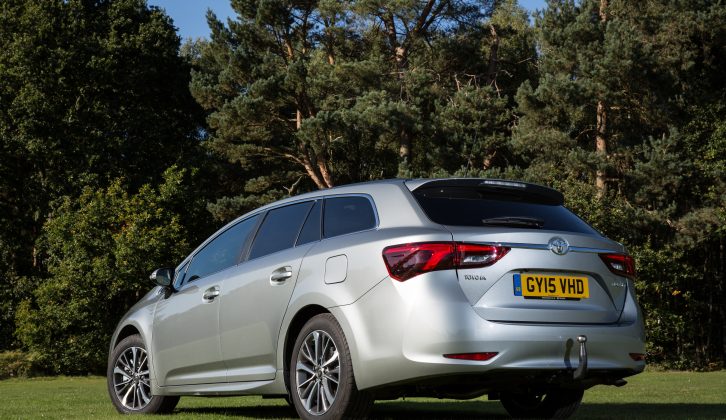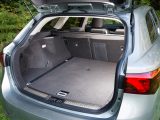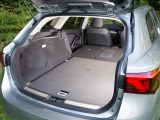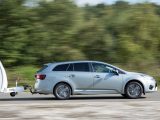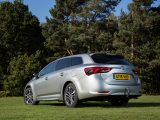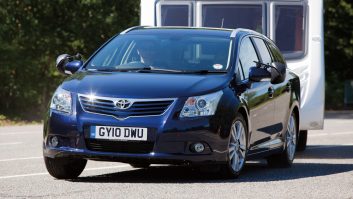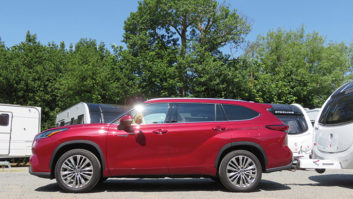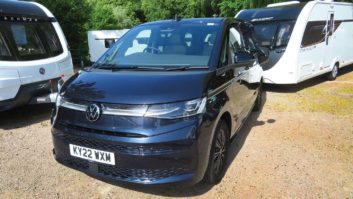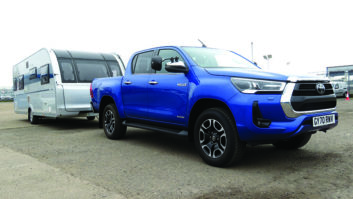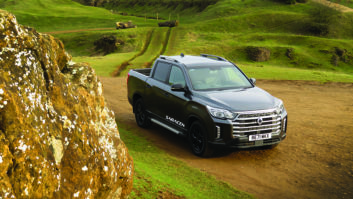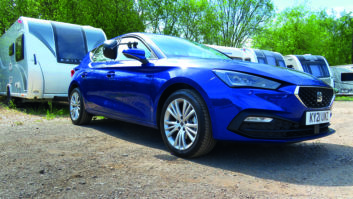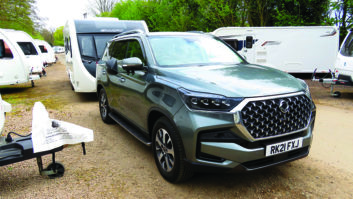Verdict
The revised Toyota Avensis is better to drive and to travel in than before. A Passat is more fun to drive, rides more comfortably and has more space. However, we’ve no serious complaints about the Toyota’s ability as a tow car, and its reliability and long warranty make the Avensis a sensible buy.
Pros
Its speed and stability when towing impressed
The Avensis is sold with the peace of mind of a good warranty
Cons
Rivals better it in terms of cabin space, boot capacity and finish
Ride and driver appeal lag behind that of the class leaders
Toyota has updated the Avensis, with a smart new look inside and out. There are also two new diesel engines, borrowed from BMW. We’ve been towing with the more powerful of the two, the 141bhp (143PS) 2.0-litre unit, fitted to the Touring Sports (estate).
So, what are we looking for – and what tow car ability does it have? Well, the Avensis has always been a sensible choice, but there are plenty of talented rivals out there. Does the revised Toyota have a bit more personality? Read our Avensis review.
Toyota has a well-deserved reputation for reliability; the Avensis gets a five-year, 100,000-mile warranty
Towing
Toyota quotes a narrow range of kerbweights for the Avensis Touring Sports 2.0 D-4D manual: 1600-1610kg. Adding 75kg for the driver to the lower figure gives a kerbweight of 1675kg. That’s significantly heavier than some rivals, to the benefit of the Toyota’s matching ratios; the 85% figure is 1424kg.
We matched the Avensis to a 2015 Swift Challenger SE 565 with a Mass in Running Order of 1351kg. The Toyota comfortably pulled the Swift up to speed. The engine’s peak torque of 236lb ft trails that of some rivals (the equivalent Ford Mondeo has 258lb ft), but it makes up for this with a strong and smooth response to the throttle, even from low revs.
Our acceleration test from 30-60mph took 13.6 seconds. We were taken with the Toyota’s stability as well as its speed. There wasn’t much work for the driver to do at a steady 60mph because the car towed straight and true, even in crosswinds.
The Avensis coped well in the lane-change test, too. Vague steering didn’t help, but the Toyota gripped hard and even when the caravan began to slide dramatically, the Avensis wasn’t pulled off course.
The hill-start test also posed little trouble to the Avensis. If we’re being picky, it’s a shame that the electronic parking brake is obscured behind the steering wheel, but the car pulled easily to the top of the 1-in-10 slope. It wasn’t so happy in reverse, though, with some vibration through the pedal and driver’s seat, and a burning smell from the clutch.
Everyday Driving
In everyday driving, the Avensis is a hard car to get excited about. The ride can be rather lumpy, but it’s not harsh. The engine is quiet and refined, but road noise over coarse surfaces can be intrusive. The Toyota handles neatly, but the steering is numb.
In isolation it’s fine, and the latest generation is a definite improvement; the trouble is that the average standard in the class keeps getting higher, and from behind the wheel the Avensis fails to trouble the likes of the Ford Mondeo or VW Passat for ride comfort or driver appeal.
Space
As with the driving experience, so with the Toyota’s cabin. It’s a step on from what’s gone before, but it’s neither the most upmarket family car nor the most spacious.
The dashboard looks smart and the touchscreen is clear and easy to use. However, tall drivers would benefit from a little more reach adjustment for the steering, and the finish isn’t as plush as a Passat’s.
The panoramic sunroof fitted as standard on Business Edition Plus cars lets plenty of light into the cabin, but it does compromise headroom somewhat in both the front and the back of the car.
Adults should be comfortable enough in the rear seats, although there’s less kneeroom than in a Škoda Superb or a Passat. It’s also a shame that there are no face-level air vents in the door pillars or even between the seats to help keep rear-seat passengers at a comfortable temperature.
There’s 534 litres of boot space with the seats up and 1609 litres with them lowered. That’s generous in isolation, but some way behind the most practical family estates.
Running Costs
The £26,135 pricetag is reasonable, given the long list of equipment fitted as standard to Business Edition Plus cars, including leather and Alcantara upholstery, 17in alloy wheels, LED headlights, sat-nav with an 8in touchscreen display, and a reversing camera. There’s also a plethora of high-tech safety aids, which have helped the car achieve a five-star rating from the crash safety experts at Euro NCAP.
Toyota has a well-deserved reputation for reliability, and the Avensis comes with the reassurance of a five-year, 100,000-mile warranty.
Technical Specifications
| Engine Size | 1995 cc |
| Kerbweight | 1675 kg |
| 85% KW | 1424 kg |
| Towball Limit | 75 kg |
| Maximum Towing Limit | 1800 kg |
| Power | 141 bhp |
| Torque | 236 lb ft |
| Offical MPG | 61.4 mpg |
| CO₂ | 120 g/km |
